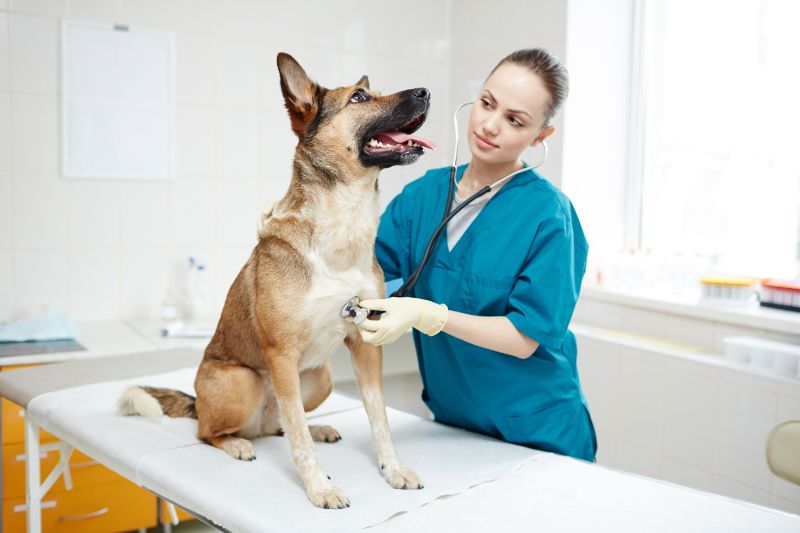Winter is here and with colder weather and runny noses comes cold and flu season. As a pet owner, it can be worrying to stay at home when you come down with a cold for fear of passing the cold along to your furry friends. If you find yourself wondering “can dogs get a human cold” you are not alone! Don’t worry, though. Due to the nature of viruses like the common flu, it is extremely unlikely that your cold will infect dogs.
Although it is rare for a human cold to infect a dog, that doesn’t mean that dogs don’t suffer from other types of colds. Dogs can catch respiratory viruses from other dogs, and these viruses can cause serious health problems. In this blog, we break down everything you need to know about dog colds.
What Is a Cold?
Before going into the specifics, it is important to first understand the fundamentals of how and why both dogs and humans get colds in the first place. Colds are just infections from common viruses that are passed along from human to human and dog to dog.
When humans think of “catching a cold,” they are often referring to viral infections of the upper respiratory system. For example, the common cold is most often caused by rhinoviruses. These viruses have evolved to specifically infect human hosts, which is why it is unlikely your cold can pass to your dog, and vice versa. There are many different types of viruses out there, however, and many can and do affect dogs.
Can Dogs Get Covid?
According to the CDC, the virus that causes COVID-19 can be spread from an infected human to a pet due to close contact activities like petting, snuggling, kissing or licking, and sharing common spaces like sleeping in the same bed. If you have been infected with COVID-19, it is best to take the same precautions with your pet as you would other people.
Dog Cold Symptoms
When a dog gets infected with a virus, it will often exhibit the same symptoms as humans do when they have a cold. Symptoms like sneezing, coughing, a runny nose, congestion, and watery eyes are all indicators that your dog may have a cold. In addition to these symptoms, it is important to keep an eye out for any signs of decreased hunger, lower energy, and increased sleeping, as these are all signs that your dog is sick.
What To Do If Your Dog Catches a Cold
Regardless of what symptoms your dog starts exhibiting, it is important to bring them to your veterinarian’s attention because they could be signs of more serious illnesses like kennel cough, parasites, dog flu, canine parainfluenza virus, and more. Depending on what is the cause of your dog’s symptoms, you will either be able to continue treating them at home or need to bring them to the vet.
Treat Your Dog’s Cold at Home
There are a few things you can do to help your dog recover from a cold at home. First, make sure they have a humidifier in their environment to keep their airways moist and fight congestion. You can also clean their environment to help get rid of any irritants that may be causing them to sneeze and cough. Additionally, it’s important to keep your pup well-rested and hydrated. You may also want to keep them away from other dogs until they are feeling better. Lastly, make sure they are eating plenty of nutritious food to promote fast recovery.
Bring Them To a Vet
If a dog’s symptoms are caused by something more serious than a common cold, it is important to bring them to a vet for professional help. A sick pet can be a serious health hazard to other dogs in its environment and can easily become dehydrated or develop other health problems. That’s why it’s important for pet owners in Flagstaff to have a trusted, local resource for treating their sick pets. The experienced staff at Continental Animal Wellness Center is that resource. Continental Animal Wellness Center offers comprehensive veterinary care for sick pets. So the next time your dog has a cold, contact us.
Is Your Pet Fighting Seasonal Allergies?
The effects of seasonal allergies can often mimic those of the common cold, like watery eyes, sneezing, runny nose, and even ear infections. To help combat seasonal allergies, we wrote a blog that describes how to identify and treat these pesty inconveniences. Click the button below to learn more!


